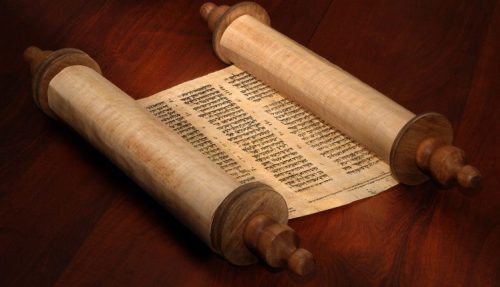

The story of Joseph is one of those rare narratives in Tanach in which a Jew (Israelite/Hebrew) comes to play a prominent part in a gentile society – the others are, most notably, the books of Esther and Daniel. I want here to explore one facet of that scenario. How does a Jew speak to a non-Jew about God?
What is particular, and what is universal, in the religious life? In its approach to this, Judaism is unique. On the one hand, the God of Abraham is, we believe, the God of everyone. We are all – Jew and non-Jew alike – made in God’s image and likeness. On the other, the religion of Abraham is not the religion of everyone. It was born in the specific covenant God made with Abraham and his descendants. We say of God in our prayers that He “chose us from all the peoples.”
How does this work out in practice? When Joseph, son of Jacob, meets Pharaoh, King of Egypt, what concepts do they share, and what remains untranslatable?
The Torah answers this question deftly and subtly. When Joseph is brought from prison to interpret Pharaoh’s dreams, both men refer to God, always using the word Elokim. The word appears seven times in the scene,[1] always in biblical narrative a significant number. The first five are spoken by Joseph: “God will give Pharaoh the answer He desires … God has revealed to Pharaoh what He is about to do … God has shown Pharaoh what He is about to do … The matter has been firmly decided by God, and God will do it soon” (Gen. 41:16-32).
The last two are uttered by Pharaoh himself, after Joseph has interpreted the dreams, stated the problem (seven years of famine), provided the solution (store up grain in the years of plenty), and advised him to appoint a “wise and discerning man” (Gen. 41:33) to oversee the project:
The plan seemed good to Pharaoh and all his officials. So Pharaoh asked them, “Can we find anyone like this man, in whom is the spirit of God?” Then Pharaoh said to Joseph, “Since God has made all this known to you, there is no one so discerning and wise as you. You shall be in charge of my palace…” (Gen. 41:37–39)
This is surprising. The Egypt of the Pharaohs was not a monotheistic culture. It was a place of many gods and goddesses – the sun, the Nile, and so on. To be sure, there was a brief period under Ikhnaton (Amenhotep IV), when the official religion was reformed in the direction of monolatry (worship of one god without disputing the existence of others). But this was short-lived, and certainly not at the time of Joseph. The entire biblical portrayal of Egypt is predicated on their belief in many gods, against whom God “executed judgement” at the time of the plagues. Why then does Joseph take it for granted that Pharaoh will understand his reference to God – an assumption proved correct when Pharaoh twice uses the word himself? What is the significance of the word Elokim?
The Hebrew Bible has two primary ways of referring to God, the four-letter name we allude to as Hashem (“the name” par excellence) and the word Elokim. The sages understood the difference in terms of the distinction between God-as-justice (Elokim) and God-as-mercy (Hashem). However, the philosopher-poet of the eleventh century, Judah HaLevi, proposed a quite different distinction, based not on ethical attributes but on modes of relationship[2] – a view revived in the twentieth century by Martin Buber in his distinction between I-It and I-Thou.
HaLevi’s view was this: the ancients worshipped forces of nature, which they personified as gods. Each was known as El, or Eloah. The word “El” therefore generically means “a force, a power, of nature.” The fundamental difference between those cultures and Judaism, was that Judaism believed that the forces of nature were not independent and autonomous. They represented a single totality, one creative will, the Author of being. The Torah therefore speaks of Elokim in the plural, meaning, “the sum of all forces, the totality of all powers.” In today’s language, we might say that Elokim is God as He is disclosed by science: the Big Bang, the various forces that give the universe its configuration, and the genetic code that shapes life from the simplest bacterium to Homo sapiens.
Hashem is a word of different kind. It is, according to HaLevi, God’s proper name. Just as “the first patriarch” (a generic description) was called Abraham (a name), and “the leader who led the Israelites out of Egypt” (another description) was called Moses, so “the Author of being” (Elokim) has a proper name, Hashem.
The difference between proper names and generic descriptions is fundamental. Things have descriptions, but only people have proper names. When we call someone by name we are engaged in a fundamental existential encounter. We are relating to them in their uniqueness and ours. We are opening up ourselves to them and inviting them to open themselves up to us. We are, in Kant’s famous distinction, regarding them as ends, not means, as centres of value in themselves, not potential tools to the satisfaction of our desires.
The word Hashem represents a revolution in the religious life of humankind. It means that we relate to the totality of being, not as does a scientist seeing it as something to be understood and controlled, but as does a poet standing before it in reverence and awe, addressing and being addressed by it.
Elokim is God as we encounter Him in nature. Hashem is God as we encounter Him in personal relationships, above all in speech, conversation, dialogue, words. Elokim is God as He is found in creation. Hashem is God as He is disclosed in revelation.
Hence the tension in Judaism between the universal and the particular. God as we encounter Him in creation is universal. God as we hear Him in revelation is particular. This is mirrored in the way the Genesis story develops. It begins with characters and events whose significance is that they are universal archetypes: Adam and Eve, Cain and Abel, Noah and the Flood, the builders of Babel. Their stories are about the human condition as such: obedience and rebellion, faith and fratricide, hubris and nemesis, technology and violence, the order God makes and the chaos we create. Not until the twelfth chapter of Genesis does the Torah turn to the particular, to one family, that of Abraham and Sarah, and the covenant God enters into with them and their descendants.
This duality is why Genesis speaks of two covenants, the first with Noah and all humanity after the Flood, the second with Abraham and his descendants, later given more detailed shape at Mount Sinai in the days of Moses. The Noahide covenant is universal, with its seven basic moral commands. These are the minimal requirements of humanity as such, the foundations of any decent society. The other is the richly detailed code of 613 commandments that form Israel’s unique constitution as “a kingdom of priests and a holy nation” (Exodus 19:6).
So there are the universals of Judaism – creation, humanity as God’s image, and the covenant with Noah. There are also its particularities – revelation, Israel as God’s “firstborn child,” and the covenants with Abraham and the Jewish people at Sinai. The first represents the face of God accessible to all humankind; the second, that special, intimate and personal relationship He has with the people He holds close, as disclosed in the Torah (revelation) and Jewish history (redemption). The word for the first is Elokim, and for the second, Hashem.
We can now understand that Genesis works on the assumption that one aspect of God, Elokim, is intelligible to all human beings, regardless of whether they belong to the family of Abraham or not. So, for example, Elokim comes in a vision to Avimelekh, King of Gerar, despite the fact that he is a pagan. The Hittites call Abraham “a prince of God [Elokim] in our midst.” Jacob, in his conversations with Laban and later with Esau uses the term Elokim. When he returns to the land of Canaan, the Torah says that “the terror of God [Elokim]” fell on the surrounding towns. All these cases refer to individuals or groups who are outside the Abrahamic covenant. Yet the Torah has no hesitation in ascribing to them the language of Elokim.
That is why Joseph is able to assume that Egyptians will understand the idea of Elokim, even though they are wholly unfamiliar with the idea of Hashem. This is made clear in two pointed contrasts. The first occurs in Genesis 39, Joseph’s experience in the house of Potiphar. The chapter consistently and repeatedly uses the word Hashem in relation to Joseph (“Hashem was with Joseph… Hashem gave him success in everything he did” [Gen. 39:2, 5]), but when Joseph speaks to Potiphar’s wife, who is attempting to seduce him, he says, “How then could I do such a wicked thing and sin against Elokim” (Gen. 30:9).
The second is in the contrast between the Pharaoh who speaks to Joseph and twice uses the word Elokim, and the Pharaoh of Moses’ day, who says, “Who is Hashem that I should obey Him and let Israel go? I do not know Hashem and I will not let Israel go” (Exodus 5:2). An Egyptian can understand Elokim, the God of nature. He cannot understand Hashem, the God of personal relationship.
Judaism was and remains unique in its combination of universalism and particularism. We believe that God is the God of all humanity. He created all. He is accessible to all. He cares for all. He has made a covenant with all.
Yet there is also a relationship with God that is unique to the Jewish people. It alone has placed its national life under His direct sovereignty. It alone has risked its very existence on a divine covenant. It testifies in its history to the presence within it of a Presence beyond history.
As we search in the twenty-first century for a way to avoid a “clash of civilisations,” humanity can learn much from this ancient and still compelling way of understanding the human condition. We are all “the image and likeness” of God. There are universal principles of human dignity. They are expressed in the Noahide covenant, in human wisdom (?okhma), and in that aspect of the One God we call Elokim. There is a global covenant of human solidarity.
But each civilisation is also unique. We do not presume to judge them, except insofar as they succeed or fail in honouring the basic, universal principles of human dignity and justice. We as Jews rest secure in our relationship with God, the God who has revealed Himself to us in the intimacy and particularity of love, whom we call Hashem.
The challenge of an era of conflicting civilisations is best met by following the example of Abraham, Sarah and their children, as exemplified in Joseph’s contribution to the economy and politics of Egypt, saving it and the region from famine. To be a Jew is to be true to our faith while being a blessing to others regardless of their faith. That is a formula for peace and graciousness in an age badly in need of both.

1] The word appears nine times in Genesis 41, the last two in the later episode in which Joseph gives names to his two sons.
2] Judah HaLevi, Kuzari, book 1v, para. 1.

An international religious leader, philosopher, award-winning author and respected moral voice, Rabbi Lord Jonathan Sacks was awarded the 2016 Templeton Prize in recognition of his “exceptional contributions to affirming life’s spiritual dimension.” Described by H.R.H. The Prince of Wales as “a light unto this nation” and by former British Prime Minister Tony Blair as “an intellectual giant”, Rabbi Sacks is a frequent and sought-after contributor to radio, television and the press both in Britain and around the world.
Since stepping down as the Chief Rabbi of the United Hebrew Congregations of the Commonwealth – a position he served for 22 years between 1991 and 2013 – Rabbi Sacks has held a number of professorships at several academic institutions including Yeshiva University and King’s College London. In addition to his writing and lecturing, he currently serves as the Ingeborg and Ira Rennert Global Distinguished Professor at New York University. Rabbi Sacks has been awarded 17 honorary doctorates including a Doctor of Divinity conferred to mark his first ten years in office as Chief Rabbi, by the then Archbishop of Canterbury, Lord Carey.
Rabbi Sacks is the author of over 30 books. Among them, Rabbi Sacks has published a new English translation and commentary for the Koren Sacks Siddur, the first new Orthodox siddur in a generation, as well as powerful commentaries for the Rosh HaShana, Yom Kippur, Pesach, Shavuot and Sukkot Machzorim. His most recent work, Not in God’s Name: Confronting Religious Violence was awarded a 2015 National Jewish Book Award in America and was a top ten Sunday Times bestseller in the UK. Past works include: The Great Partnership: God, Science and the Search for Meaning; The Dignity of Difference: How to Avoid the Clash of Civilizations, winner of the Grawemeyer Prize for Religion in 2004 for its success in defining a framework for interfaith dialogue between people of all faith and of none; To Heal a Fractured World: The Ethics of Responsibility; and A Letter in the Scroll: On Being Jewish, winner of a National Jewish Book Awards in 2000. His Covenant & Conversationcommentaries on the weekly Torah portion are read in Jewish communities around the world.
In recognition of his work, Rabbi Sacks has received, among others, the Jerusalem Prize in 1995 for his contribution to diaspora Jewish life, The Ladislaus Laszt Ecumenical and Social Concern Award from Ben Gurion University in Israel in 2011, The Guardian of Zion Award from the Ingeborg Rennert Center for Jerusalem Studies at Bar-Ilan University in 2014, and The Katz Award in recognition of his contribution to the practical analysis and application of Halakha in modern life in Israel in 2014. He was named as The Becket Fund’s 2014 Canterbury Medalist for his role in the defence of religious liberty in the public square; won a Bradley Prize in 2016 in recognition of being “a leading moral voice in today’s world”; and in 2017, he was awarded the Irving Kristol Award from the American Enterprise Institute for his “remarkable contributions to philosophy, religion, and interfaith discourse… as one of the world’s greatest living public intellectuals.” In 2018, he was given the Lifetime Achievement Award by The London Jewish News in recognition of his services to the Jewish world and wider society.
Rabbi Sacks was knighted by Her Majesty The Queen in 2005 and made a Life Peer, taking his seat in the House of Lords in October 2009. Born in 1948 in London, he has been married to Elaine since 1970. They have three children and several grandchildren.